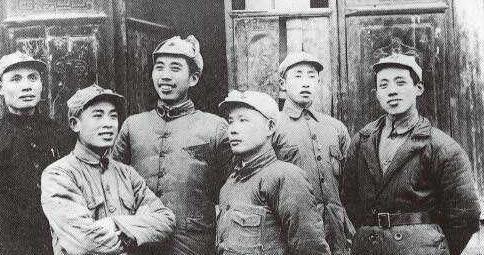In the years of China's revolutionary war, countless soldiers have emerged, who have made great contributions to the construction of new China, of course, in each of them, there are certain legendary experiences, this is no exception, and what we want to talk about today is that the Chinese People's Liberation Army was the first commander of the Fourth Army, but he was not awarded the title in 1955, this person is Wang Shitai.

The name of the Fourth Army, in fact, very early to follow the Communist Party of China, the first Kuomintang-Communist cooperation, at that time by the Kuomintang and the Communist Party of the two parties formed the Northern Expedition Army, the Fourth Army of the Cantonese Army is a well-deserved iron army, especially later the Fourth Army led by Ye Ting, but also the iron army in the iron army, even after the defeat of the Great Revolution, the fourth army this name still has a high status in people's hearts, after the Nanchang Uprising, with the victory of Jinggangshan Division, the troops after the division at that time were reorganized into the Fourth Army of the Workers' and Peasants' Red Army. It was also the second unit in history to be named after the Fourth Army. During the agrarian revolution, both the Western Xiang'e and Eyu-Anhui Red Army units had the designation of the Fourth Army.
During the War of Resistance Against Japanese Aggression, when the entire Red Army was reorganized into the Eighth Route Army, and the troops in the south were reorganized into the New Fourth Army, the reason why it was reorganized into the New Fourth Army was also to let this unit inherit the glorious tradition of the Fourth Army of the Iron Army during the Northern Expedition, which was the third unit in history with the Fourth Army as its name.
During the Liberation War, the Shaanxi-Gansu-Ningxia Field Army was reorganized into the Northwest Field Army, and the Northwest Field Army had five columns and a directly subordinate mountain artillery battalion under its jurisdiction at that time; after 1949, the various units of the Northwest Field Army were reorganized into the 1st, 2nd, 3rd, 4th, 6th, 7th, and 8th Armies, and the 1st and 2nd Cavalry Brigades were renamed the 1st and 2nd Cavalry Divisions.
Wang Shitai himself was also an old qualified party member, who had always been in charge of local work, and later in charge of the military movement work in the Kuomintang troops, when the Shaanxi-Gansu detachment of the Chinese Workers' and Peasants' Communist Army was formed, Wang Shitai joined the Shaanxi-Gansu detachment and served as the squad leader. Became one of the representative figures of the Shaanxi-Gansu Red Army.
After the outbreak of the War of Resistance Against Japanese Aggression, Wang Shitai served as the deputy commander of the security of the Shaanxi-Gansu-Ningxia Border Region, until the troops were reorganized into the Northwest Field Army, he became the commander of the Fourth Army, in fact, if you look at the seniority, Wang Shitai can be awarded the rank of general after the founding of the People's Republic of China, but before the founding of New China, Wang Shitai was transferred to the gansu administrative office director, and later served as vice chairman of the Gansu Provincial People's Government, and left the army, so he missed the title awarded in 1955, and in the years of revolutionary struggle, Wang Shitai showed a strong and indomitable spirit. He also dedicated his life's experience to the motherland, and in 2008, Wang Shitai died of illness in Haikou at the age of 98.